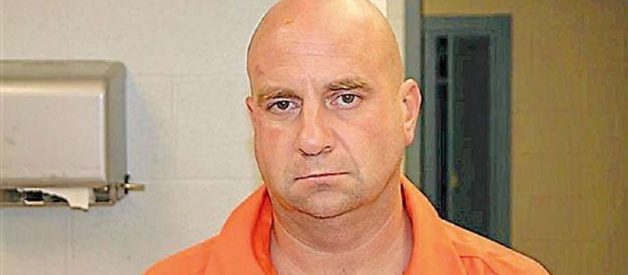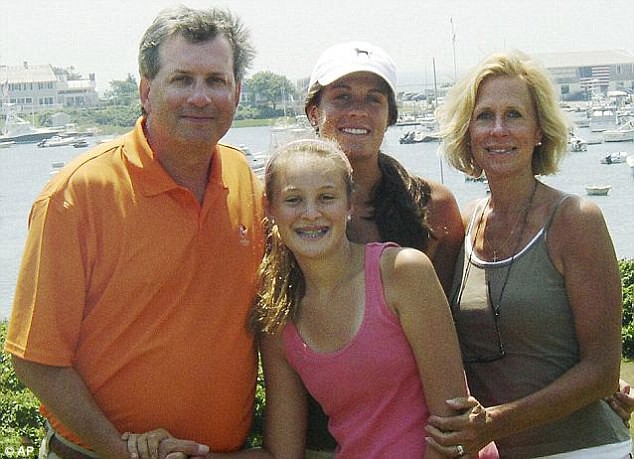 Source: Daily Mail
Source: Daily Mail
Innocence Lost
You are more likely to be a victim of violent crime in some areas of the country than in others, but the sad and frightening truth is that safety is just an illusion. We only have so much control over what happens in our lives.
We assume that home is a safe place. We lock the doors, pull the blinds, and hope that our castle is impenetrable. In the case of the Cheshire Murders, evil was waiting for the right moment to pounce on the Petit family, and it entered the home and destroyed the lives of four people by sneaking in through an open window.
All in a big, fancy house on a quiet, boring street.
Evil Meets Evil
In the summer of 2006, two men with a long history of non-violent crimes met and became friends in a drug treatment center. It appeared they were taking their sobriety seriously, attending Alcoholics Anonymous and Narcotics Anonymous meetings together.
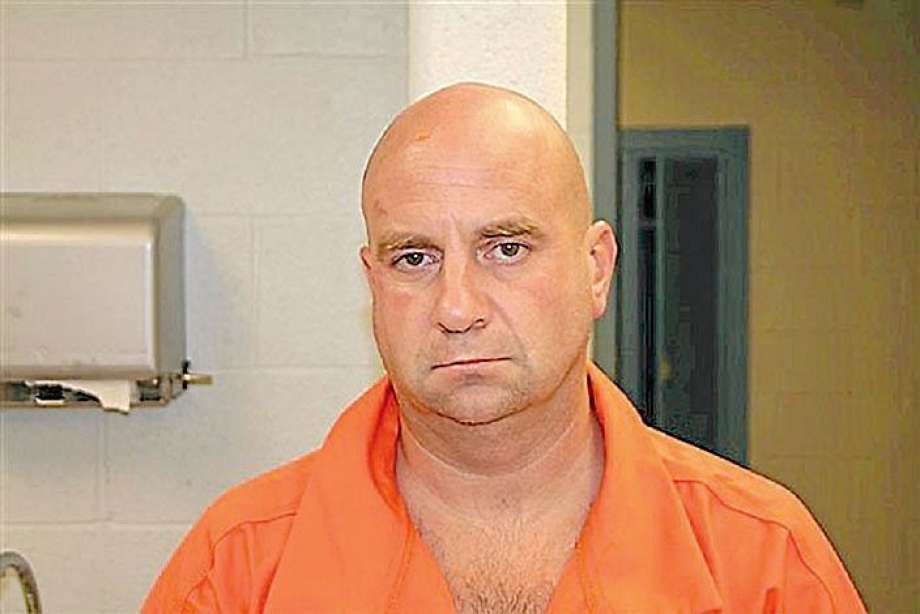 Steven Hayes ? Source: New Haven Register
Steven Hayes ? Source: New Haven Register
Steven Hayes, 47, had a long history of substance abuse and disciplinary problems in jail. He had already attempted rehab once, but that came to a screeching halt when Hayes discovered crack cocaine. That detour morphed into an 11-day burglary spree, interrupted periodically by crack binges.
Hayes? literal partner in crime, Joshua Komisarjevsky, 30, was a crystal meth and cocaine addict who had been hooked on his drugs of choice since age 19. He broke into upscale homes and stole whatever he could get his hands on to support his habit.
 Joshua Komisarjevsky ? Source: CBS News
Joshua Komisarjevsky ? Source: CBS News
There was nothing in either man?s criminal history to suggest they were capable of the level of brutality that eventually landed them on death row in one of the most violent cases in Connecticut history, and one of the most infamous cases in the United States.
The Good Life
Dr. William ?Bill? Petit, Jr., 50, his wife Jennifer Hawke-Petit, 48, and the couple?s two daughters, 17-year-old Hayley and 11-year-old Michaela, lived the good life at 300 Sorghum Mill Drive in Cheshire, Connecticut. They weren?t filthy rich, but they were more than comfortable.
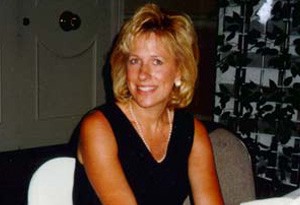 Jennifer Hawke-Petit ? Source: Oprah.com
Jennifer Hawke-Petit ? Source: Oprah.com
Dr. Petit was one of the top diabetes specialists in the country. Wife Jennifer was a pediatric nurse battling multiple sclerosis, but she never let the disease slow her pace or keep her from investing in the lives of her daughters.
Hayley had just graduated from Miss Porter?s School, a prestigious private school where Gloria Vanderbilt and Jacqueline Kennedy Onassis received their education. She was headed to Dartmouth University in the fall to follow in her father?s footsteps by studying medicine. She worked tirelessly to raise funds for multiple sclerosis research, though few knew of the humble young woman?s fundraising accomplishments.
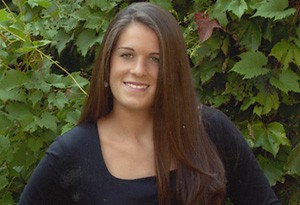 Hayley Petit ? Source: Oprah.com
Hayley Petit ? Source: Oprah.com
Michaela attended Chase Collegiate School and planned to take over fundraising duties for her big sister when she left for college. She was a gentle, thoughtful soul who enjoyed spending time in the family?s garden with her father.
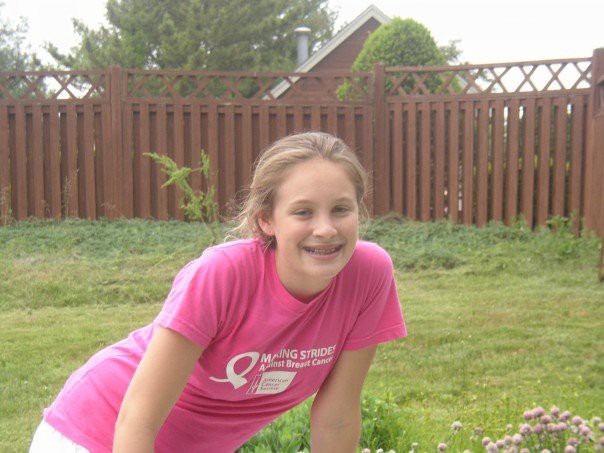 Michaela ?Kaykay? Petit ? Source: FanPop.com
Michaela ?Kaykay? Petit ? Source: FanPop.com
July 22, 2007, was a normal, relaxing summer day for the Petit family. Michaela, or ?KK,? as the family called her, was a budding chef. She wanted to make dinner that night, so her mother went with her to a local grocery store to buy ingredients for the meal. All the while, the illusion of safety made the pair feel relaxed and comfortable as they went aisle to aisle, never realizing they were being stalked.
Joshua Komisarjevsky had spotted Jennifer and Michaela in the parking lot of the grocery store and waited for them to emerge so he could follow them home. It is believed Komisarjevsky, a presumed pedophile, chose the pair because he was attracted to little KK.
 Jennifer Hawke-Petit and Michaela Petit ? Source: Talk Murder With Me
Jennifer Hawke-Petit and Michaela Petit ? Source: Talk Murder With Me
When the mother and daughter turned into their driveway, Komisarjevsky thought he?d hit the jackpot. The house was the biggest one on the street. Surely, he would walk out of there a rich man.
A Match Made in Hell
Komisarjevsky and Steven Hayes met while both men were living in a halfway house. Upon their release from prison, neither man had a regular job to rely on. Irregular contracting work meant they didn?t always know when they would have money in their pockets.
Komisarjevsky had a girlfriend, Caroline, who was just 18 at the time. Her father didn?t approve of the relationship because of Komisarjevsky?s criminal history. He was certain his daughter?s beau was a career criminal. Caroline?s father also considered Komisarjevsky a pedophile and was certain Komisarjevsky?s only interest in his teenage daughter was her age and youthful appearance.
That didn?t keep the couple apart, however, and when Caroline?s family moved to Arkansas, Komisarjevsky started trying to figure out how to bring her back to Connecticut so they could start a new life together.
Hayes and Komisarjevsky reignited their friendship after running into each other at a 12-step meeting. Komisarjevsky told his older pal that he was in desperate need of money, and the two hatched a plot to get Komisarjevsky the funds to bring his girlfriend back to Connecticut.
But the men?s burglary skills were a little rusty, so on July 21, the would-be murderers did a test run. Komisarjevsky, a skilled burglar, broke into a house while Hayes waited outside. It was so simple. Too simple. The Petit family home seemed like the perfect place to carry out the real deal, and they figured they could get in and out with armloads of cash, all the while escaping undetected.
 The Petit family home before the murders ? Source: HBO.com
The Petit family home before the murders ? Source: HBO.com
On July 22, 2007, around 7:45 p.m., Hayes texted Komisarjevsky saying he was ?chomping at the bit to get started,? and that he would soon need a margarita. An hour later, Komisarjevsky texted Hayes that he was putting his 5-year-old daughter to bed and then he would be ready to get the show on the road.
Meanwhile, the residents of 300 Sorghum Mill Drive were settled in for the night. By 11 p.m., Jennifer, Hayley, and Michaela had drifted off to sleep after watching TV, and Dr. Petit was asleep on a sofa on the back porch after a night of reading.
Everything was quiet. All was calm. The family was looking forward to another warm Connecticut day, embraced by the illusion of safety.
Every Family?s Worst Nightmare
On the morning of July 23, David Simcik had just unleashed his dog after a long walk when he heard what he thought was someone calling his name.
The retired teacher and neighbor of the Petits for 18 years saw nothing when he looked out his kitchen window, then his mudroom window. But when he looked in his garage, he was met with the gruesome sight of a man so beaten and bloodied he couldn?t recognize him. His arms and legs were bound. His head was split open on top and in the front.
Simcik told the Hartford Courant in 2010:
?I did not recognize him at first. His face was banged up. It just didn?t look like Dr. Petit.?
Dr. Petit?s next words were:
?Dave, Dave call 911.?
As Simcik dialed 911, he looked up and saw a police officer walking up the driveway with his rifle drawn.
The police instructed Simcik to get inside ?immediately? and asked Dr. Petit if anyone was inside the house.
?The girls,? he choked out.

And just that fast, flames and smoke erupted from the Petit house.
Hours of Terror
On the night of the 22nd, Hayes and Komisarjevsky drove to a nearby Walmart where they purchased an air rifle and rope.
Upon arriving at the Petit house around 3 a.m. on the 23rd, the men entered through an open window only to find Dr. Petit asleep on the couch. In the past, the men would have simply snuck around the house as quietly as possible, perhaps even moving on to a safer target. Komisarjevsky prided himself on being able to break into homes and remain there for hours, undetected. Instead, Komisarjevsky hit Dr. Petit over the head with a baseball bat.
Dr. Petit awoke, confused and in shock. Hayes and Komisarjevsky tied him up and took him to the basement, where they proceeded to bound him to a pipe. Komisarjevsky later came back to prop up the physician?s head with pillows to make him more comfortable while the two misfit criminals went about destroying his life.
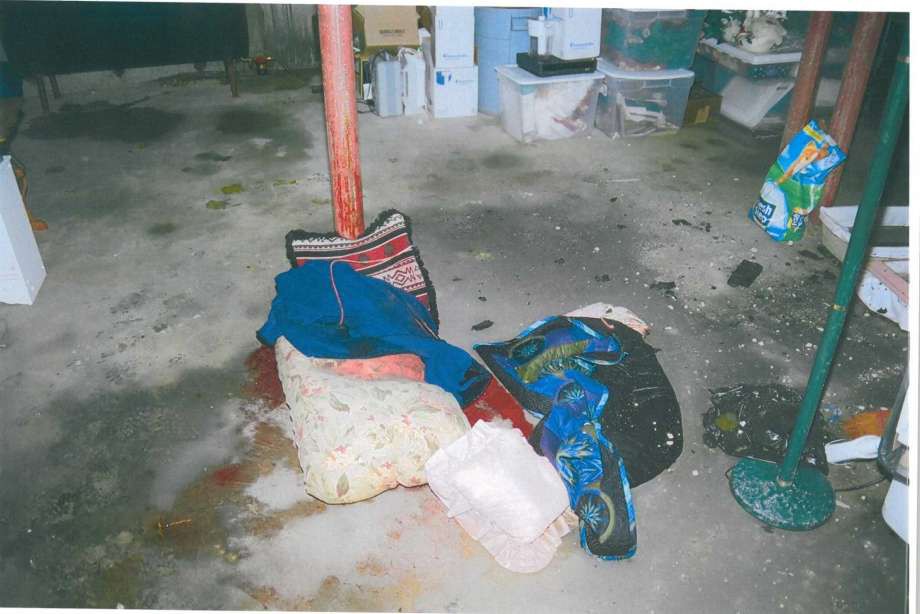 The spot in the basement where Dr. Petit was bound ? Source: New Haven Register
The spot in the basement where Dr. Petit was bound ? Source: New Haven Register
When Hayes and Komisarjevsky made their way upstairs, they found Jennifer Hawke-Petit and Michaela in bed together in Jennifer and Dr. Petit?s bedroom. The youngster had fallen asleep while reading a Harry Potter novel beside her mother. Hayley, meanwhile, was asleep in her bed. The men tied up the three women, put pillowcases over their heads, returned Michaela to her room, and bound each of the women to their beds.
The robbery was a disappointing one for Hayes and Komisarjevsky. The two were certain the Petit family would have a safe full of cash and jewels in the home, but there was no safe. There was, however, a checkbook indicating a bank account containing thousands of dollars. Determined not to walk away empty-handed, the team hatched a plot to take Jennifer to the bank as soon as it opened at 9 a.m., where they would force her to withdraw thousands of dollars.
In the interim, the men drank beer out of the family?s fridge and at some point, Hayes went to a nearby gas station to fill up two gallon-jugs of gasoline.
When 9 a.m. finally arrived, Jennifer Hawke-Petit trembled as she looked out the window of the car. Hayes was at the wheel. As he pulled into the bank parking lot, he told the terrified mom that he would kill her daughters if she didn?t return with $15,000, or if anyone called the police.
But Jennifer couldn?t hide her horror. She entered the bank and walked up to the teller window with great determination, her hands trembling, her tired eyes enrobed in dark circles. Though she was calm, it was obvious to observers that something was amiss.
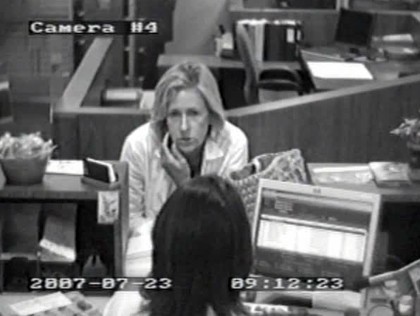 Jennifer Hawke-Petit on bank surveillance ? Source: CBS News New York
Jennifer Hawke-Petit on bank surveillance ? Source: CBS News New York
Jennifer was able to tell a bank teller what was going on, and the teller alerted the bank manager. The manager recalls her looking ?petrified.? Even if she had appeared completely normal, her request for such an exorbitant amount of money likely would have been enough to raise red flags.
The bank account Jennifer tried to draw from was a joint account, so the teller couldn?t issue her the money without Dr. Petit present. But it was apparent that this was not a scam, so the teller went to the manager, who arranged for Jennifer to take out a line of credit that would allow her to get the $15,000 she requested in three bundles of $5,000.
 Source: Daily Mail
Source: Daily Mail
The teller explained to the manager that Hayes had told Mrs. Hawke-Petit that he would kill her family if the police were notified, but the manager snuck into her office, turned off the lights, and dialed 911 anyway.
Mary Lyons, the bank branch manager that day, said:
?She explained to me that her family was being held and as long as she got the money and got back to the house everybody would be OK. I just knew from the look on her face and the look in her eyes that she was telling the truth. Her eyes told me ? a look from one mom to another mom.?
That should have been the end of the story. The twisted robbers had every opportunity to take the money and run. But when Hayes and Jennifer returned to the home, Komisarjevsky informed Hayes that he had sexually assaulted little Michaela. He performed oral sex on her and recorded the act on his phone. He also posed the young girl in various sexual positions while he pleasured himself, snapping photos along the way.
During questioning, Komisarjevsky said there was only contact, but no rape. But the evidence left behind after the fire told a different story.
Now, Komisarjevsky said, it was time for Hayes to ?square things up? by raping Jennifer, which Hayes proceeded to do on the living room floor.
At 9:51 a.m., a wounded Dr. Petit emerged from the basement and hopped across his yard to David Simcik?s house, yelling for someone to call the police.
It?s in a man?s DNA to protect his family. It was his wife?s screams and a rhythmic ?thump?thump?thump? upstairs that roused Dr. Petit from his semi-conscious state in the cellar, and somehow he managed to get out and yell for help, despite being seriously injured and tied up.
He didn?t realize that what he had heard was the sound of his wife being raped and murdered. He emerged from the basement having no idea what was going on in the main part of the house.
Hayes and Komisarjevsky heard the commotion, and it sent Hayes into a rage. In his fury, he strangled Jennifer to death. To this day, both men blame each other for pouring gasoline around the house ? including directly on the girls ? and lighting a match, but the prosecution would reveal at trial that gasoline was found on both men?s clothing.
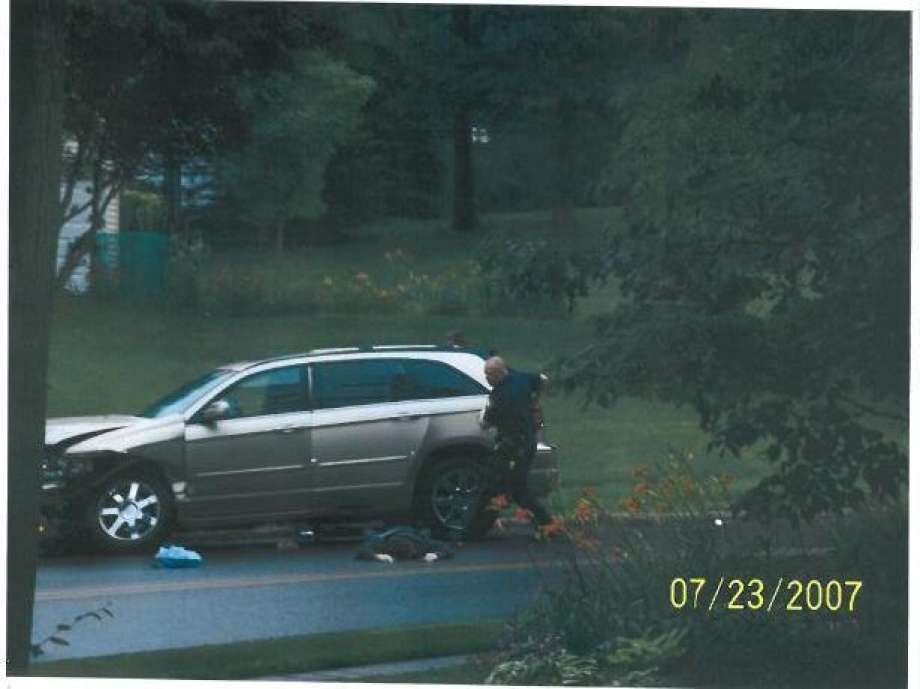 Joshua Komisarjevsky being held at gunpoint ? Source: New Haven Register
Joshua Komisarjevsky being held at gunpoint ? Source: New Haven Register
Exactly five minutes later, the men burst out of the Petit house and piled into the family?s SUV. The duo rammed a police car while trying to escape and they were quickly apprehended.
When captured, Hayes gave police a fake name and said he didn?t know if anyone else was in the house when asked. Komisarjevsky was forthcoming and told police that three people were inside and that they needed to hurry if they were going to save them. By then, it was already too late.
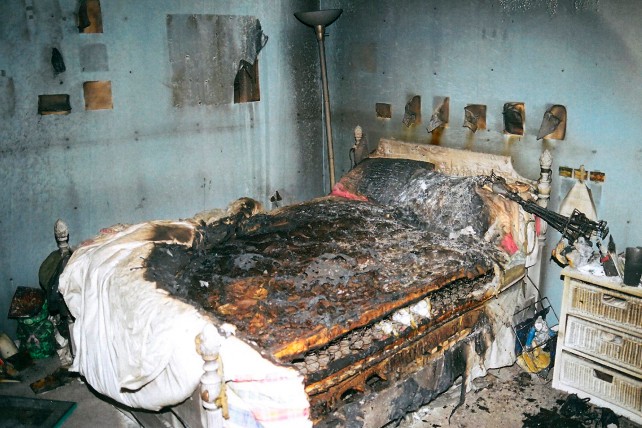 Source: New York Post
Source: New York Post
Inside the house, there was no one left to save. Michaela, still tied to the bed, died of smoke inhalation. Hayley, a strong athlete, managed to free herself but succumbed to the smoke and fire at the top of the staircase. She, too, died of smoke inhalation. However, both girls were aflame as they inhaled the thick smoke and soot.
Missed Opportunities
The first question many people ask upon hearing about the Cheshire Murders is, ?Why didn?t the police intervene??
It?s a valid question, and it?s one that has been asked among family members, friends and neighbors, and the media.
According to testimony in the trial, Cheshire police officer Thomas Wright received a call over his police radio around 9:30 a.m. about a home invasion on Sorghum Mill Dr.
Before heading to the scene, Wright went back to the police station to grab a special vest and a rifle for another officer also headed to the scene.
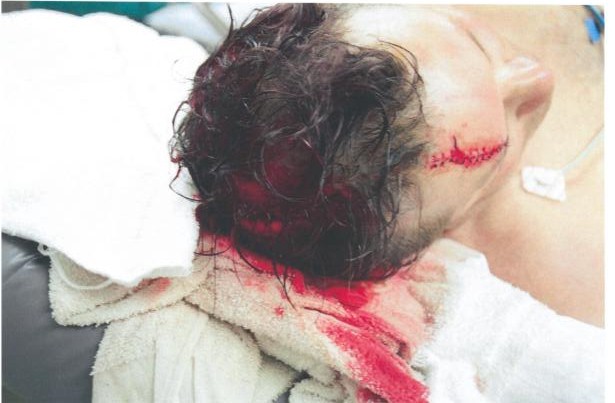 Dr. William Petit?s head wounds from being beaten with a baseball bat
Dr. William Petit?s head wounds from being beaten with a baseball bat
Police announced over the radio that they didn?t want more police cruisers going by the Petit home, so Wright parked his vehicle at a nearby intersection. As Wright traipsed through the backyard to give the rifle to his fellow officer, he saw a man in a driveway between a vehicle and a garage door, ?bleeding profusely.?
Wright, as it turned out, was the officer who yelled at Simcik to go back inside his house. Officers pointed their guns at the wounded doctor, unsure if he was one of the perpetrators, despite his obvious physical injuries and bindings.
Wright grabbed Simcik?s phone and told the 911 operator to send an ambulance. Then, he looked over and saw a tan vehicle careen over a lawn and head straight for one of the Cheshire officers on the road.
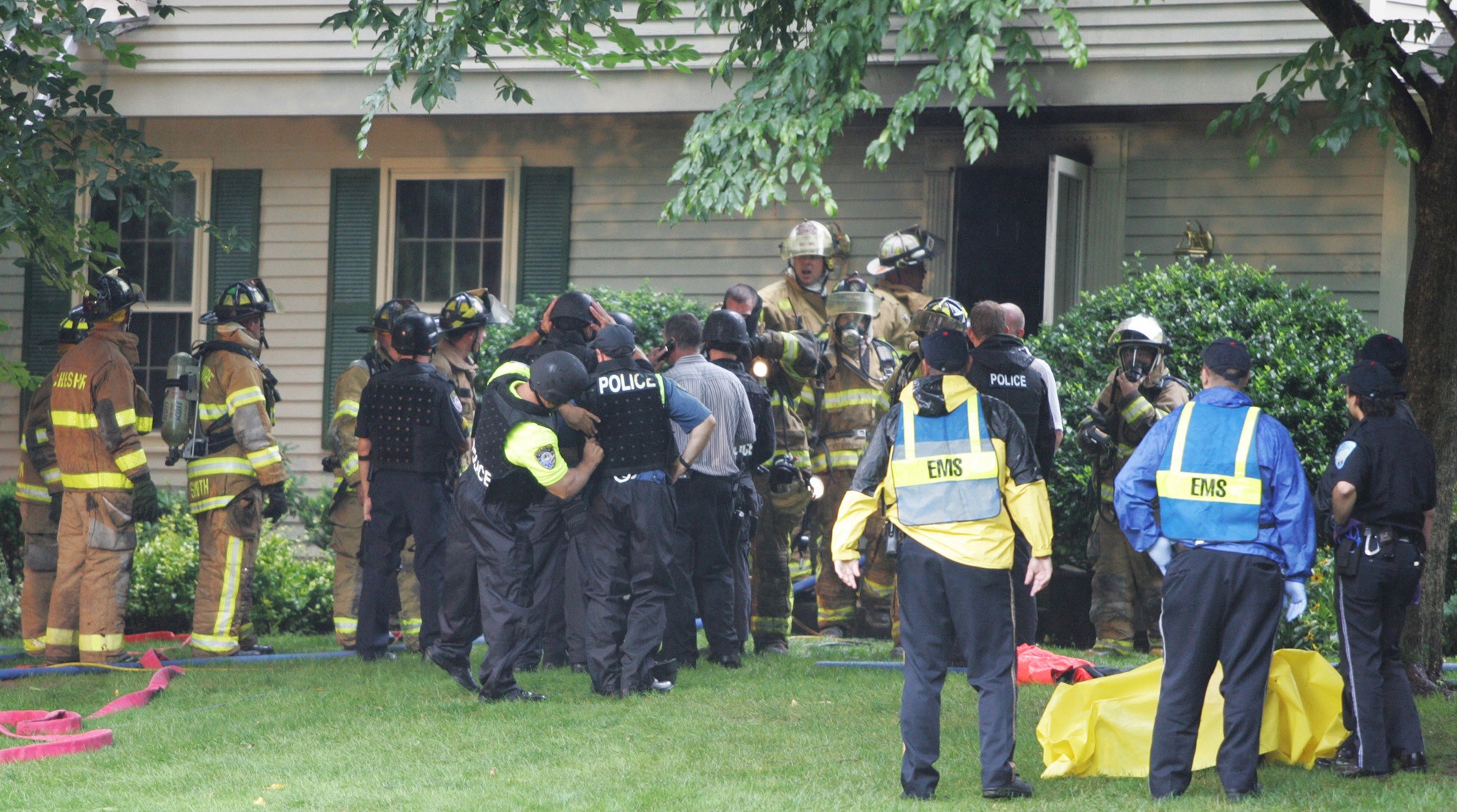 Source: People.com
Source: People.com
The flames were too ferocious for officers to enter 300 Sorghum Mill Drive. The department claims they tried to get into the front of the home, then the back. They searched for a ladder to try and break into an upstairs window, but to no avail. At that point, the fire department arrived, but their only job at that point was putting out the fire, not rescuing survivors.
The decision to burn the house down with the family inside was made after Komisarjevsky informed Hayes that Dr. Petit had escaped. Hayes? rage exploded further when he looked out the window and saw either a police officer in the backyard or a police vehicle on the road, depending on the report.
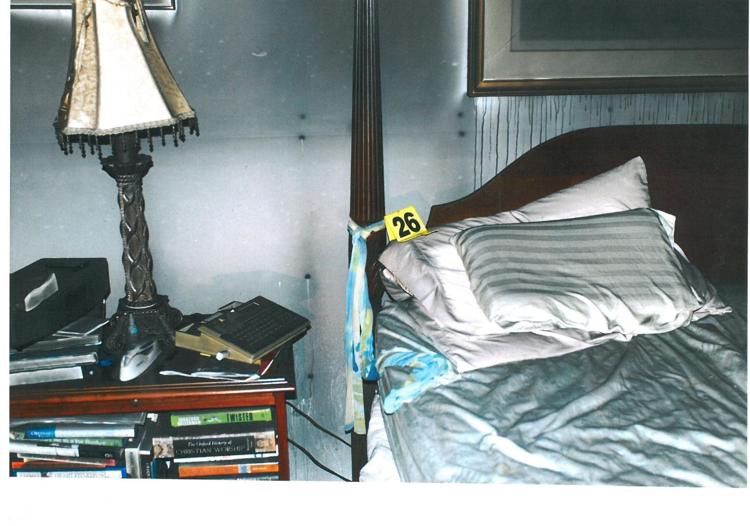 Source: The Litchfield County Times
Source: The Litchfield County Times
Neither coward was willing to take the rap for the nightmare the occurred in the Petit house. After all, not only had the youngest family member been sexually assaulted, but when Hayes and Komisarjevsky poured gasoline around the house and lit it on fire, they went the extra evil step of pouring it on the girls so that any DNA burn away.
So, why didn?t the police immediately enter the home? Why, instead, did they surround the house? The police were ordered not to enter the home. They were further ordered not to contact anyone inside the house. As it turned out, Jennifer Hawke-Petit was suspected of being complicit in the robbery, because although she looked petrified and her hands trembled inside the bank, she was remarkably calm throughout the ordeal. At first, they suspected she was part of the plot, not an innocent victim.
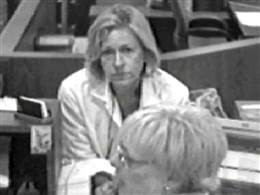 Source: NBC News
Source: NBC News
In police recordings played at the trials of Hayes and Komisarjevsky, Cheshire Sgt. Robert Vignola can be heard saying:
?Three suspects. One is a female supposedly in the upstairs bedroom possibly [dead] with the other two.?
Shockingly, those words were spoken 50 minutes after the initial 911 call.
One police officer, Lt. Joseph Mazzini, actually got to the house before Hayes and Jennifer got back from the bank, but he was ordered not to approach anyone or to make contact with anyone inside the house.
Sgt. Vignola instead told Lt. Joseph Mazzini:
?What I want to do is set up a perimeter, a better perimeter, as soon as everyone is geared up, and then what we are going to wind up doing is ? we?re going to have to make contact.?
A police negotiator called in but was told to hold off.
Thirty-three minutes elapsed from the time the initial 911 call was made by the bank manager and when police finally realized that at least one person inside the Petit home was in physical distress.
At least two more members of the Petit family might be alive today had they entered the house, or at the bare minimum, allowed the hostage negotiator to talk to the perpetrators. Many have questioned why police didn?t stop Hayes and Mrs. Hawke-Petit at the bank.
To this day, the Cheshire police have not admitted to any wrongdoing or offered an apology or even an explanation to the families of the victims. When the Petit and Hawke families and the community responded with outrage, the Cheshire Police were forced to hold a news conference. In it, they praised the actions of the first responders that day, but few are convinced that the first responders did their jobs. Locals believe either they weren?t properly trained, or they were too fearful to engage Hayes and Komisarjevsky.
A Matter of Life and Death
Nearly a year after the Petit murders, the trials of Steven Hayes and Joshua Komisarjevsky were on the minds of everyone in Cheshire, the state, and the entire nation. Both men, still too cowardly to take responsibility for the heinous murders, were pointing fingers at each other while insisting on separate trials, which they were ultimately granted.
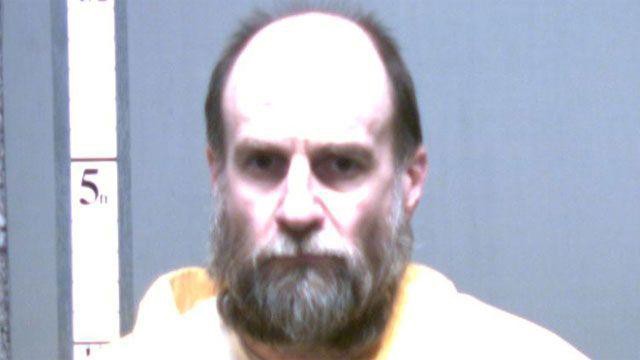 A thinner-looking Steven Hayes ? Source: WFSB
A thinner-looking Steven Hayes ? Source: WFSB
Initially, both men agreed to a plea bargain that would have given them life in prison without parole. However, when the defense presented the deal to the prosecution, they dismissed it in favor of pursuing the death penalty. While Dr. Petit firmly believed both men deserved to be put to death, the decision meant that Hayes and Komisarjevsky would go to trial, and Dr. Petit would have to relieve the ordeal twice.
The evidence in the trials was so gruesome and heart-wrenching that free counseling was provided to jurors, and many experienced severe emotional turmoil as a result of hearing the coroner describe the women?s injuries and seeing the crime scene photos. When the prosecution showed the jury the disgusting photos that Komisarjevsky took of Michaela, the trial was cut short for the day because one of the jurors was struggling emotionally with the evidence.
At the start of Hayes? trial in October 2010, his lawyer argued that a life sentence would be a worse punishment for his client than death because he relived the event over and over in his mind every day. While waiting for his trial to start, he attempted suicide more than once. But the jury disagreed and sentenced him to death by lethal injection.
In December 2010, Hayes apologized to the Petit family, telling them:
?I oftentimes looked at Dr. Petit and became sick to my stomach knowing what he has been through and what he continues to go through to this day. There?s not a moment that goes by that this does not weigh on my mind, especially since he suffered due to my actions. My suffering is meaningless compared to that of Dr. Petit. Death for me will be a welcome relief and I hope it will bring some peace and comfort to those who I have hurt so much.?
Hayes added:
?I am deeply sorry for what I have done and the pain I have caused. My actions have hurt so many people, affected so many lives, and caused so much pain. I am tormented and have nightmares about what happened in that house.?
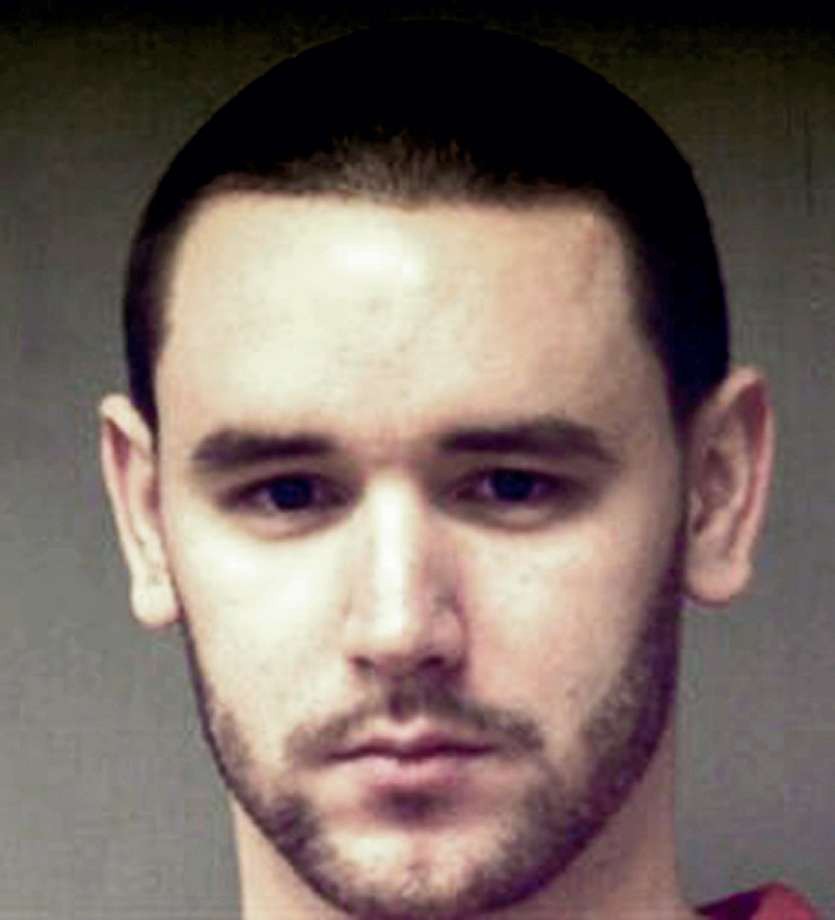 Joshua Komisarjevsky ? Source: New Haven Register
Joshua Komisarjevsky ? Source: New Haven Register
Komisarjevsky, too, was sentenced to death. He told the court:
?I will never find peace within. My life will be a continuation of the hurt I caused. The clock is now ticking and I owe a debt I cannot repay. It?s a surreal experience, being condemned to die.?
But Komisarjevsky?s jailhouse diaries suggest he was a man quaking with anger and he finally found the people to take it out on. The crime didn?t haunt him; it was a relief for the deeply troubled man.
In one passage, Komisarjevsky wrote:
?All were compliant. This time I took a risk, pulled the trigger, and the chamber was loaded ? The Petit family passed through their fears and into terror ? It was captivating, validating that the pain in me was real ? I was looking right at my personal demon, reflected back in their eyes ? Hayley is a fighter; she tried time and time again to free herself ? Mr. Petit is a coward; he ran away when he thought his life was threatened, and ran away to leave his wife and children to madmen ? I was cheated of my retribution, and so was Steve ? I am what I am ? I make no excuses ? I?m a criminal with a criminal mind.?
In another passage, he wrote:
?I was faced with the shocking realization that in some respects, I enjoy it. They were experiencing what I experience every day.?
He ended the 43-page diary with this phony remorseful plea:
?Michaela, Hayley, Jennifer ? forgive me please. I am damned, take my life.?
How Murderers Are Made
What turns a man into a murderer? If Joshua Komisarjevsky is to be believed, the answer is abuse and crystal meth.
If Komisarjevsky had followed the path his family had laid out for him, he would be a good Christian man now, not a convicted killer.
Komisarjevsky alleged he was sexually abused by his teenage foster brother between the ages of four and six, then made to feel like the lowest of sinners by his religious parents. At the age of 14, he was reportedly raped by ?a very close and important friend.?
Komisarjevsky?s family didn?t know about the sexual abuse he endured by his foster brother until he was in jail. He said that even though they were unaware of the abuse while it was occurring, they still made him feel like a bad person because they and the church they attended made it very clear that homosexuality was an abominable sin.
The alleged sexual abuse began when Komisarjevsky?s foster brother asked Komisarjevsky to pose in sexual positions with his sister, who was two years younger than Komisarjevsky. She was young enough that ?Joshua remembers she was young enough to be wearing pink footie pajamas.?
It was ingrained in Komisarjevsky?s mind at a very young age that the abuse was normal behavior between brothers, even though his foster brother made fun of him for crying out in pain during the abuse.
Komisarjevsky also claims he was physically abused and tortured by his foster brother, including being burned with lit cigarettes.
When Komisarjevsky?s parents found out their foster son was abusing another female foster child in the home, they had both children removed. They never explained to Komisarjevsky why this occurred, leaving the young boy to feel that he had done something bad.
When Komisarjevsky was 14, he began extensively abusing crystal meth, which is a drug known for making people act erratically and violently. That was also the year he found out he had been adopted when he was two weeks old. Additionally, he had a history of recurrent childhood concussions.
The combination of these factors could have affected certain parts of Komisarjevsky?s brain, said neuropsychologist Dr. Leo Shea, causing irritability, an inability to make decisions, social problems, and a lack of empathy.
Many people experience horrific childhoods similar to Komisarjevsky?s, but never go on to commit violent crimes, or any crimes at all.
During a 2002 sentencing, Komisarjevsky blamed his actions on falling away from God and his family and said his crimes weighed ?so heavily? on his shoulders. But he was paroled in April 2007, and just three months later, he tortured and murdered the Petit family.
Throughout his confession and the subsequent trial, Komisarjevsky never once cried or showed any emotion or remorse.
Prosecutors pointed out that Komisarjevsky only broke into homes during the night, never during the day, and this suggested he was hoping for a confrontation since nighttime is when most people are at home. Komisarjevsky often spent hours inside the homes he burglarized and frequently went room to room just to hear the breathing of the sleeping occupants.
Komisarjevsky?s ex-girlfriend, Caroline Mesel, said in 2011 that her former lover bragged to her about his role in the Petit murders, and joked about how big Dr. Petit was and how difficult it was to knock him out with the baseball bat.
He also laughed several times while confessing to police his role in the killings.
In the case of Steven Hayes? childhood, it appears that he was the torturer, not the tortured.
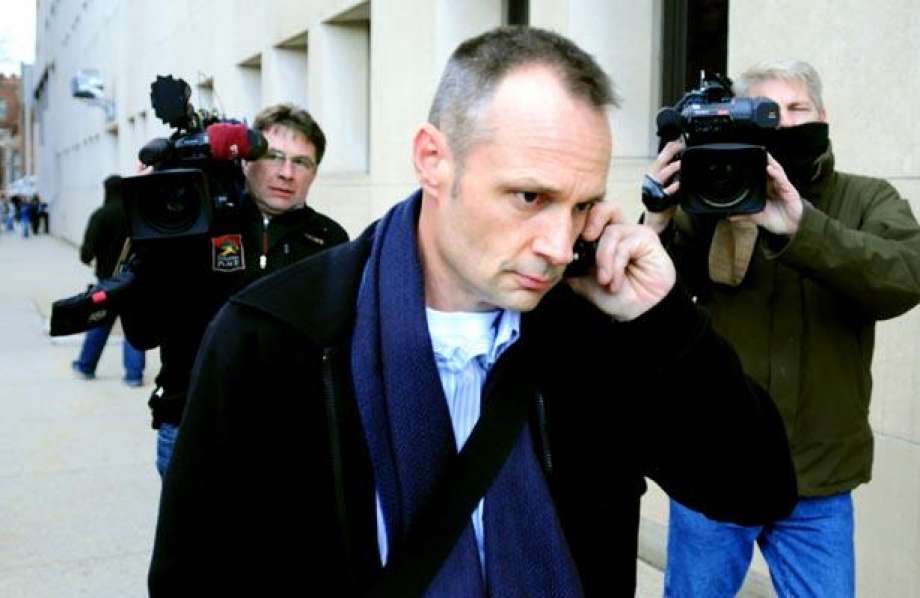 Matthew Hayes, younger brother of Steven Hayes ? Source: New Haven Register
Matthew Hayes, younger brother of Steven Hayes ? Source: New Haven Register
Hayes? younger brother recounted in a letter read in court that his older sibling burned him on the stove and once held a gun to his head.
Matthew Hayes stated in the letter:
?Steven is what Steven is because he is a coward. As family of this monster we all have to live with this nightmare.?
Though he claimed he was not the monster that Komisarjevsky was, Steven Hayes agreed with his brother that he was a coward.
Hayes may not have had a violent criminal history, but he had a background that may have helped prime him for the violent behavior he eventually committed. Hayes had an abusive father and frequently witnessed him beat his mother. Hayes himself, as well as his brother, Matthew, were on the receiving end of his father?s rage.
When Steven and Matthew did something bad, their father would force them to ?duke it out? until one of them confessed to the offense. Then, the boys? father would severely beat the ?guilty? son.
Hayes stated that Matthew even suffered a broken leg during one such battle.
Hayes? mother sank into an abyss of depression and alcoholism until she finally took the children and left her husband before he had a chance to start beating the youngest boy, Brian.
By age 14, Hayes was already smoking weed daily and committing burglaries to pay for his habit. At 15, he was sent to a psychiatric hospital.
According to a forensic psychiatrist hired by Hayes? defense team, Hayes, too, was physically and sexually abused as a child.
A psychiatrist stated that while Komisarjevsky may be a psychopath, Hayes was not. The doctor diagnosed him with having an adjustment disorder and anti-social personality disorder, which, is not that much different from being a psychopath.
Justice Overturned
In August 2015, it seemed the trials of Hayes and Komisarjevsky were all for naught when the Connecticut Supreme Court ruled the death penalty unconstitutional and banned executions for inmates on death row.
Both men could have taken plea deals and spared the Petit and Hawke families the agony of going through two trials after all. For Dr. Petit, it felt like another baseball bat to the head.
In the end, Hayes and Komisarjevsky were re-sentenced to six life terms in prison.
But the horror and drama of July 23, 2007, didn?t end there.
An attorney for Komisarjevsky told the Connecticut Supreme Court in October 2019 that his client is seeking a new trial for the home invasion murders and that the original should not have been held in New Haven because the jury selection was ?a circus? that ruined Komisarjevsky?s chances for a fair trial.
An appeal was filed on Komisarjevsky?s behalf in 2017, partly blaming the police?s slow response for the murders. (Remember, Komisarjevsky places the blame for the killings on Hayes.)
He remains an unrepentant coward.
As for Hayes, he claims he is transgender and is currently undergoing hormone therapy in prison.
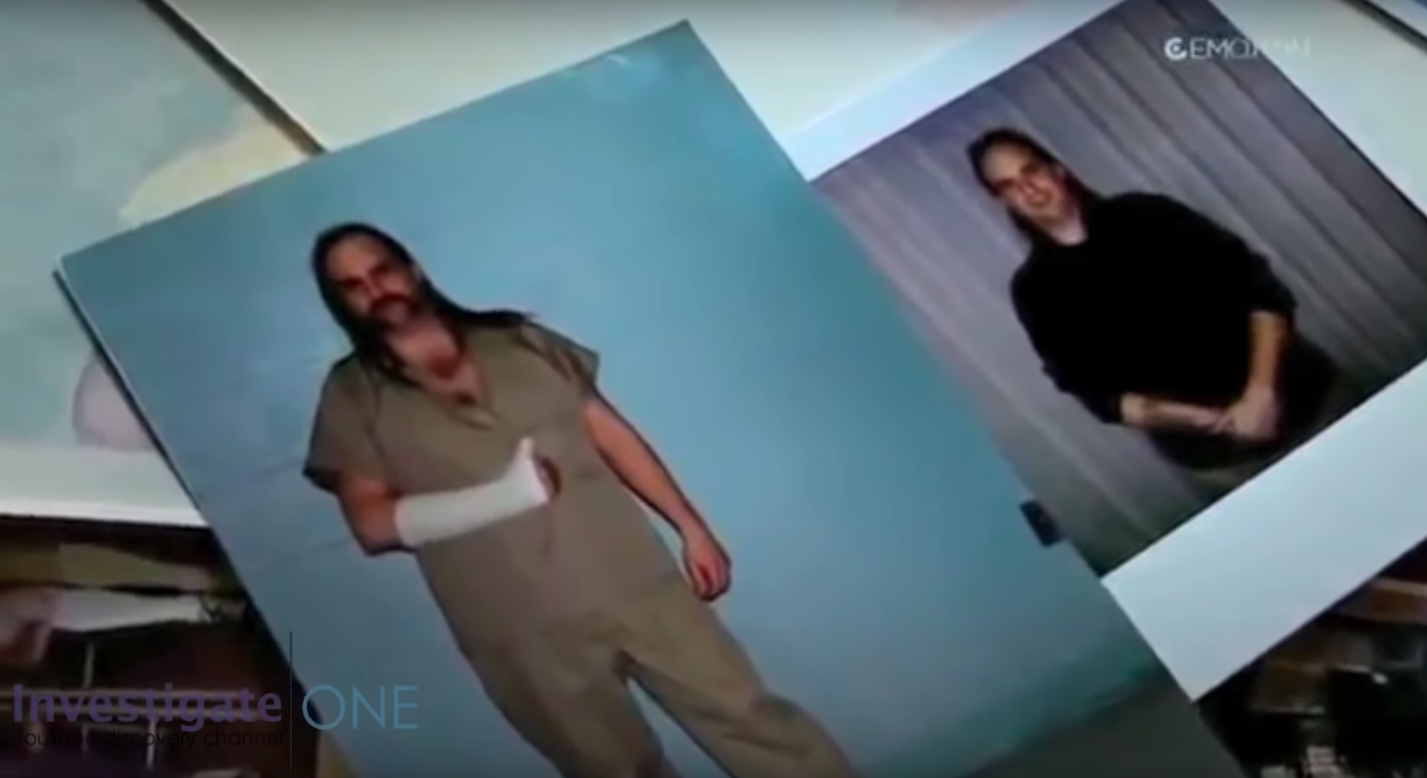 Source: Daily Caller
Source: Daily Caller
In 2018, he was released into the general population at his prison where the poor thing endured bullying by other inmates. He complained that there was ?a lot of pettiness among prisoners and staff.?
?It?s not the place to be. People are just trying to etch out the best life they can, and right now my sole purpose is to etch out a life to where I can be, I guess, a light to somebody, and I can try and reach out to prisoners here, although being transgender ? that makes it difficult. A lot of people just turn away from that because they?d rather just look at me as some type of creep.?
[No worries, Mr. Hayes, or Ms. Hayes, whichever you prefer to be called. You?ll always be ?some type of creep? no matter which gender you are.]
Rising from the Ashes
When two thugs killed Dr. Petit?s family, he faced a choice: Give up on life, or rebuild. He chose the latter.
It?s not that Dr. Petit didn?t consider giving up. It was the fear of the unknown that kept him painfully alive.
He told Oprah in 2010 that he chose not to take his own life for fear he would not be reunited with his wife and daughters in Heaven.
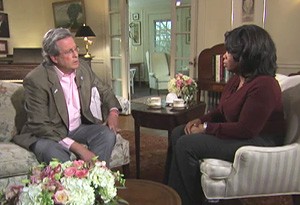 Source: Oprah.com
Source: Oprah.com
?I thought of the afterlife and if I was going to meet up with my family. I thought that [if I killed myself], maybe I would never meet up with them again, and I wasn?t willing to take that chance.?
His faith in God remained intact, he said, but it wasn?t an easy relationship.
?I believe in God, but I was pretty angry with Him for a long time. I?ve talked to a lot of smart people who have told me it?s OK to be angry with God. God can take it.?
At the time, Dr. Petit said he spent a lot of time locked in his room, unable to face the world without his family. He suffered from post-traumatic stress disorder (PTSD) and frequent flashbacks of the night his world was ripped away from him.
?I went to sleep one night in a nice home with a loving family and basically awoke in an emergency room, naked on a gurney with no family, no home. Everything was just gone.?
He also told Oprah that despite the assurances of friends, he was ?not convinced? he would ever feel happiness again.
But at the end of Dr. Petit?s long, dark tunnel were three brilliant lights waiting for him to emerge on the other side.
 Source: People.com
Source: People.com
In 2012, Dr. Petit married Christine Paluf, a freelance photographer and volunteer with the Petit Family Foundation founded by Dr. Petit in honor of the Petit women, in front of 300 guests, with the blessing of his late wife?s family.
Before the wedding meal, a blessing written by Jennifer Hawke-Petit?s father, Rev. Richard Hawke, was read. Rev. Hawke had wanted to read it himself, but he and his wife could not attend the wedding due to Mrs. Petit?s health.
 Source: Today.com
Source: Today.com
In November 2013, the couple welcomed a baby boy, William Arthur Petit III. In a statement, Dr. Petit said:
?Our son is a beautiful Thanksgiving and Christmas gift. He is very loveable and sweet. I will tell him of his two big sisters, Hayley and Michaela, and how they always helped others with smiles on their faces. I am sure they and their mother Jennifer are smiling down upon him.?
In 2016, Dr. Petit won a state legislative seat in Connecticut. He ran as a Republican and was nominated for the 22nd House District. The budding politician defeated Rep. Elizabeth Bokus, an 11th-term incumbent.
Reborn
Dr. William Petit, Jr. will never be the same person he was, and he will never have his old life back, but he fought through the unimaginable to build a new life that would make his late wife and daughters proud.
As horrific as the Cheshire Murders were, Steven Hayes and Joshua Komisarjevsky couldn?t kill the spirit and faith of Dr. Petit, and they will never erase the memory, the love, or the good works of the three women who loved Dr. Petit ? Jennifer, Hayley, and Michaela.
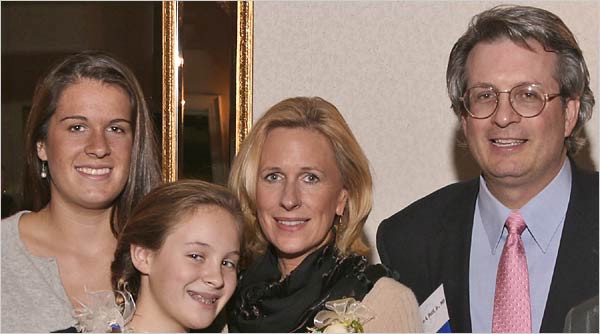 Source: The New York Times
Source: The New York Times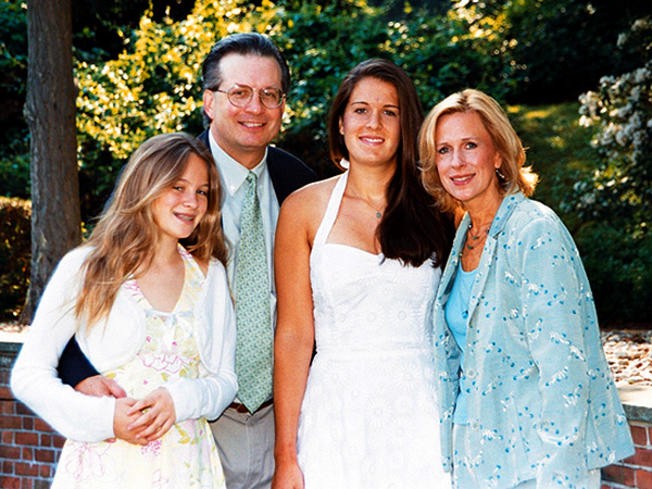 Source: NBC News Connecticut
Source: NBC News Connecticut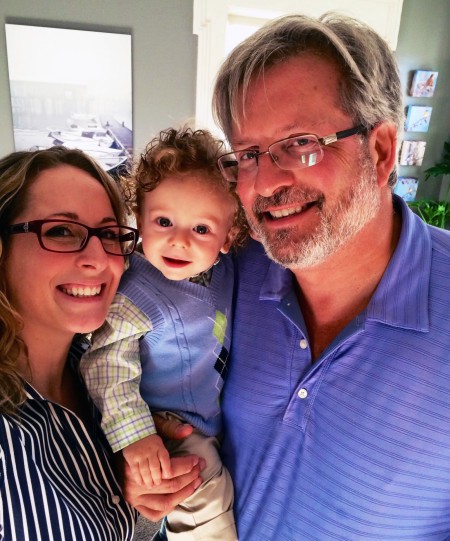 Source: New York Post
Source: New York Post
